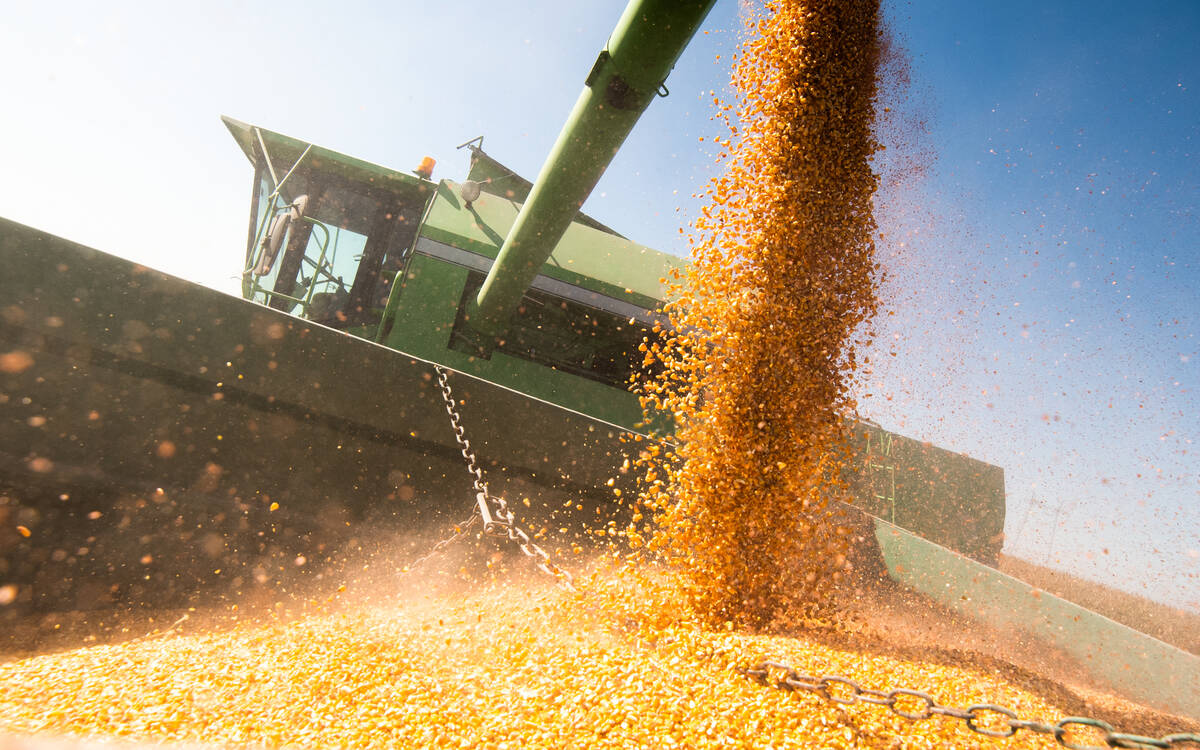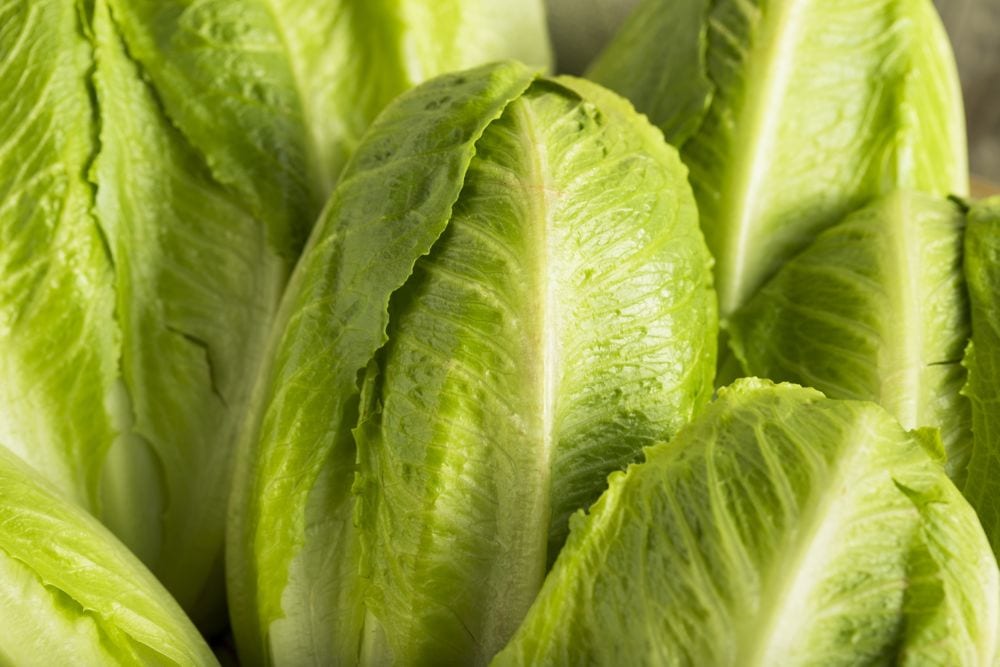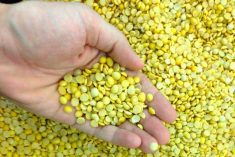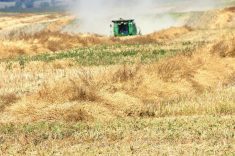Despite seeing no evidence yet of nationwide contamination, several major Canadian grocers are pulling romaine lettuce from sale across Canada in the wake of E. coli-related illness outbreaks in three provinces.
Loblaw Companies announced Wednesday it was recalling and removing from its store shelves across the country all romaine lettuce products “out of an abundance of caution.”
Sobeys also said Wednesday it has temporarily stopped the sale of all romaine lettuce products — over 300, it said — across its national store network, which includes Sobeys, Safeway, IGA, Thrifty Foods and Foodland among others.
Read Also

Feed Grain Weekly: Corn affecting barley prices in Lethbridge
Corn imports entering Lethbridge have lowered prices for feed barley compared to those in Edmonton.
According to news reports, Walmart’s Canadian arm and the Metro grocery chain in Eastern Canada have also pulled romaine from their stores.
As of Friday, the Canadian Food Inspection Agency reported 22 confirmed cases of E. coli O157:H7-related illness in people in Quebec, Ontario and New Brunswick in the current outbreak, with 17, four and one respectively. The illnesses were reported between mid-October and early November.
In the U.S., as of Tuesday, there were 32 reported cases in 11 states, according to the Centers for Disease Control and Prevention and U.S. Food and Drug Administration. The most were in California (10), Michigan (seven) and New Jersey (three).
In Canada, the investigation so far identifies exposure to romaine lettuce as a source of the outbreak, but no specific cause of contamination yet, the Public Health Agency of Canada said Friday.
Romaine lettuce is being sampled and tested in the federal food safety investigation, PHAC said, but so far all products that have been tested have turned up negative for E. coli.
With no contaminated product yet found in the marketplace and the source of the contamination not yet identified, there have been no product recalls in either Canada or the U.S. connected to this round of outbreaks, PHAC said.
“If a specific brand or source of romaine lettuce is identified in Canada the CFIA will take the necessary steps to protect the public, including recalling the product as required.”
However, PHAC said, it’s advising consumers in Ontario, Quebec and New Brunswick to avoid eating romaine lettuce and salad mixes containing romaine lettuce “until more is known about the outbreak and the cause of contamination.”
Romaine lettuce can have a shelf life of up to five weeks, so it’s possible contaminated romaine lettuce consumers bought over the past few weeks may still be in their homes.
Residents in impacted provinces are also advised to discard any romaine lettuce still in their homes and to “properly wash and sanitize” any containers or bins that came in contact with romaine lettuce.
The agencies’ advice applies to “all types or uses of romaine lettuce, such as whole heads of romaine, hearts of romaine and bags and boxes of precut lettuce and salad mixes that contain romaine, including baby romaine, spring mix, and Caesar salad.”
E. coli-related illnesses in people are often caused by raw fruits and vegetables that have come in contact with feces from infected animals, CFIA said. Leafy greens such as lettuce can also become contaminated in fields by soil, water, animals or “improperly composted” manure.
Lettuce and other leafy greens don’t naturally contain such bacteria but can also be contaminated during and after harvest from handling, storage and transport, or at grocery stores, in refrigerators or from counters and cutting boards through cross-contamination with bacteria from raw meat, poultry or seafood.
According to the FDA, genetic analysis of the E. coli O157:H7 strains from patients in the current outbreak are similar to strains of E. coli O157:H7 associated with a previous outbreak from the fall of 2017 in both Canada and the U.S.
That outbreak was associated with leafy greens in the U.S. and romaine in Canada, FDA said, while romaine lettuce is the suspected vehicle for the current U.S. and Canadian outbreaks.
There is no genetic link between the current outbreak and a separate E. coli O157:H7 outbreak linked to romaine in the spring of 2018, FDA added.
The reappearance of the same strain “suggests there may be a reoccurring source of contamination,” CFIA said, noting investigators are also using evidence from 2017 to help identify a possible cause of contamination.
According to Statistics Canada, Canadian field vegetable growers marketed about 101,016 tonnes of leaf and head lettuce in 2016, while greenhouse vegetable growers that year produced another 12,171 tonnes. –– Glacier FarmMedia Network
















